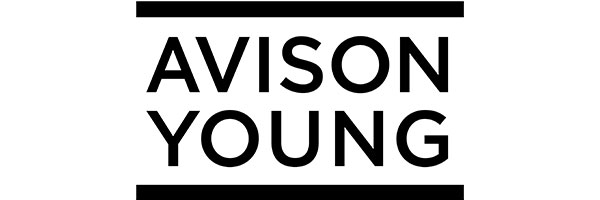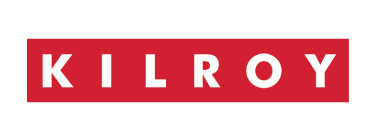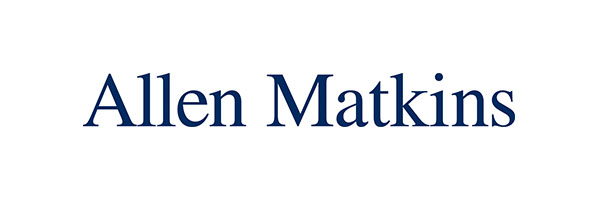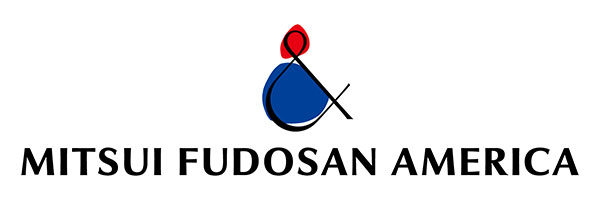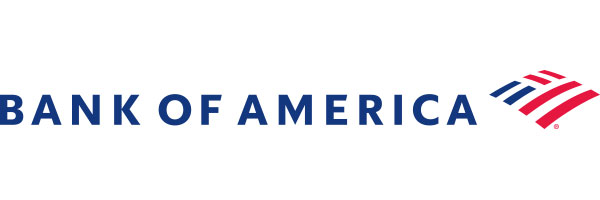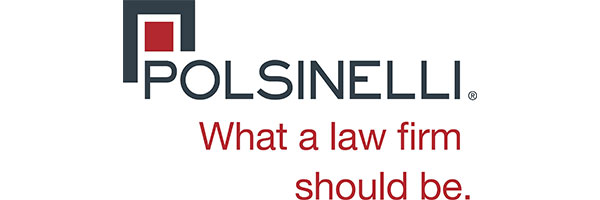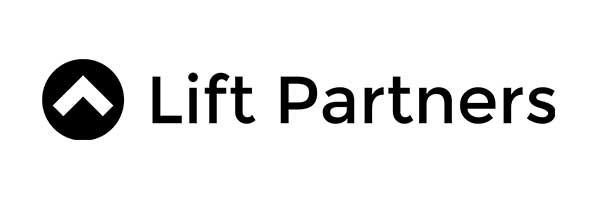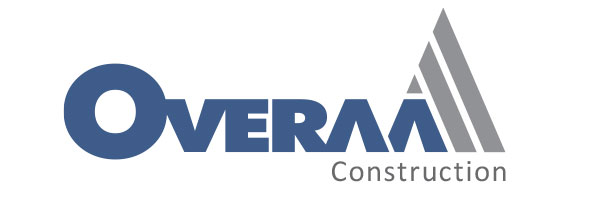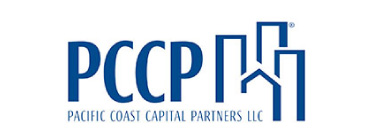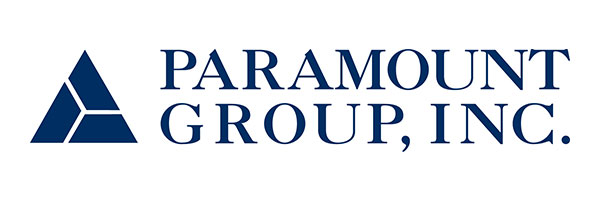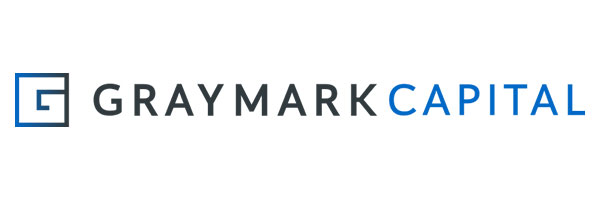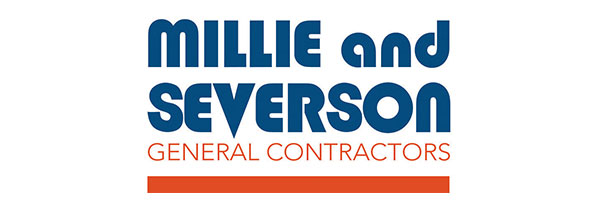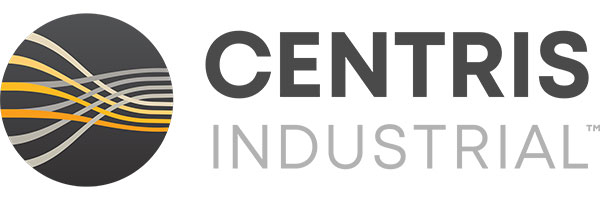CBPA's California Legislative Update 6/4/2021
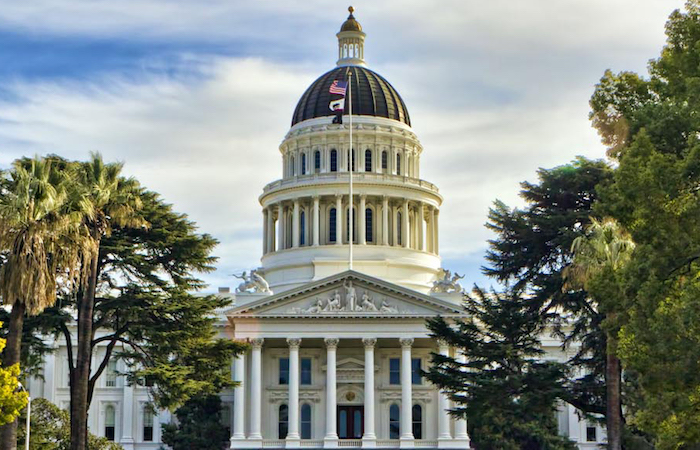
- FIRST HOUSE DEADLINE 2021
- COMMERCIAL LEASE ABROGATION BILL DIES
- CAL/OSHA COVID-19 EMERGENCY REGULATIONS
- BILLS BILLS BILLS!
- CALIFORNIA COMMERCIAL REAL ESTATE SUMMIT
- CBPA 2021 CALENDAR
FIRST HOUSE DEADLINE 2021
Today marks the halfway point of the 2021 Legislative Session, one that has seen a heavier flow of budget activity, major bills, and fast tracked policy items to address the pandemic.
Over 2,700 bills were introduced this year – our industry has been tracking and engaging on more than 500.
One of the Capitol’s well-known legislative historians, Chris Micheli reports that 66.3% of the Senate Bills and 49.6% of the Assembly Bills introduced passed their respective Houses.
On Monday, the process starts over again with all of these bills starting the policy committee process in the other house.
See below for a list of some of the major bills we had concerns with that have not made it to the Second house and are dead for the year.
We are here, working on these bills on behalf of our industry, and will do our best to keep you posted and engaged.
COMMERCIAL LEASE ABROGATION BILL DIES
AB 255 (Muratsuchi; D-Torrance) failed on the Assembly Floor this week on a 27-21 bipartisan vote. Three Democrats joined 18 Republicans voting no, and 30 legislators withheld support by abstaining.
The bill would have abrogated existing contracts to allows a business to use COVID-19 economic hardship as an “affirmative defense” as part of an unlawful detainer proceeding. The bill had provisions in it that would have allowed unnecessary court challenges and require a company to basically prove it couldn’t carry the debt of another business.
Click here to read the AB 255 current coalition letter.
Our coalition continues to agree with the author that the state mandated COVID-19 shelter-in-place orders have had negative impact on businesses of all types, but we fundamentally do not agree with the approach this bill takes to address the issue. All other relief measures provide state and/or federal funds, which the state has received in the billions. AB 255 contains no state funding assistance and instead shifts the burden to assist from one business from another.
The state’s own COVID-19 Small Business Relief Grant (SB 87) allows small businesses the ability to receive state assistance while prioritizing their own fiscal needs. With more funding that program can immediately help the same businesses targeted in AB 255 without creating negative unintended consequences. And since that program, the Governor has announced BILLIONS more in tax relief and direct funding for small businesses. These programs will accomplish what AB 255 seeks to do without a complicated court proceeding.
We think the Governor and Legislature’s approach is the most appropriate and best way for the state to assist the businesses having issues related the COVID economic closures; not inserting new rules into existing business contracts and court proceedings.
We are relieved the bill is not progressing forward, and that the Governor has recently announced even more assistance for small businesses as we approach re-opening in less than two weeks.
CAL/OSHA COVID-19 EMERGENCY REGULATIONS
Below is the summary on the Cal/OSHA actions from their hearing yesterday from the Employer Coalition we are part of, led by our friends at the CalChamber.
The bad news is all our issues weren’t fixed and there is still not complete agreement between the statewide reopening rules and what Cal/OSHA adopted. The good news is that many issues were addressed/aligned, a “process” to address more was established, and timelines have been clarified.
We continue to be an active part of the Employer coalition. If there are items specific to commercial real estate not being addressed, we need to know so we can make sure its put in the hopper moving forward. One example of some of those issues that we think have fallen by the wayside, include transfer of liability on a property owner for a tenant not following the rules.
"After a day-long meeting that included hours of public testimony and internal deliberations, the Cal/OSHA Standards Board ultimately adopted a new set of regulations that will require most indoor workers, including those who have been vaccinated, to wear face masks at work if any other worker onsite is unvaccinated. The rules are out of step with Centers for Disease Control and Prevention (CDC) guidance and the Governor’s own directive to re-open the state on June 15.
The California Chamber of Commerce has urged Cal/OSHA to act in accordance with the CDC and the Governor. The CalChamber is leading a large and vocal coalition of business groups that are calling for elimination of the overly burdensome measures in the new regulations, many of which are in direct conflict with CDC guidance. The CalChamber’s coalition submitted written comments prior to the hearing and offered detailed analysis during testimony yesterday expressing the issues and problems employers and employees will face as a result of these new rules."
Click here to read the full article.
The CalChamber’s comment letter related to outstanding issues in the Amended ETS is here, and the final text that was approved by the Board is available here.
BILLS BILLS BILLS!
Here is a list of some of the bills that our industry had concerns on over the first half of session. All of these bills have been stopped at some point in the process and are “dead” for the year.
Don’t worry, there are plenty of bills left that we are concerned about. But we present these bills as a good summary of some of the major issues we have dealt with this year that are not gone and as prep for when they come back again next year!
AB 15 (Chiu) COVID-19 relief: tenancy: Tenant Stabilization Act of 2021.
This bill has been superseded by SB 91 a bill that help provide support for residential tenants with more balance to also protect property owners’ ability to manage their properties.
AB 16 (Chiu) Tenancies: COVID-19 Tenant, Small Landlord, and Affordable Housing Provider Stabilization Act of 2021.
This bill has been superseded by SB 91 a bill that help provide support for residential tenants with more balance to also protect property owners’ ability to manage their properties.
AB 33 (Ting) Energy Conservation Assistance Act of 1979: energy storage systems and transportation electrification infrastructure.
Decarbonization/Natural Gas. Directs all electric utilities to establish a rate structure for “all-electric” buildings, prohibits gas lines in newly constructed schools, and abolishes ability for new construction gas line extension allowances.
AB 65 (Low) California Universal Basic Income Program: Personal Income Tax.
Imposes a 1 percent surcharge on income greater than $2 million to finance a California universal basic income program that would give eligible Californians $1,000 a month.
AB 71 (Rivas, Luz) Homelessness funding: Bring California Home Act.
Massive tax increase on individuals and companies to fund homeless programs. Bill has been superseded by the Governor’s budget using some of the excess state tax revenue for these purposes.
AB 111 (Boerner Horvath) Transportation: zero-emission vehicles.
We support the end goals of this bill but there is serious Concern that it would create pressure on warehouses and goods movement companies to meet difficult standards that are currently not cost effective. The ISR in the L.A. has been adopted and is a similar program.
AB 255 (Muratsuchi) COVID-19 Emergency Small Business Eviction Relief Act.
Would negatively impact commercial leases and undermine legitimate contracts and create unnecessary lawsuits. Bill has been superseded by more than a dozen state and federal programs that directly fund small businesses to assist with COVID shutdown economic hardship.
AB 257 (Gonzalez, L) Food facilities and employment.
This bill puts significant fiscal and legal requirements on small business owners. Local franchisees would bear the great burden of the bill requirements, individuals who own and operate these establishments, not the franchisor.
AB 310 (Lee) Wealth tax.
Imposes a first-in-the-nation wealth tax by removing the prohibition on the taxation of personal property in the California Constitution and imposing a wealth tax of 1 percent on net household wealth of more than $50 million and 1.5 percent on household wealth of more than $1 billion. The tax would apply to savings, art and collectibles, offshore financial wealth, stocks, mutual funds and index funds, and other real property.
AB 377 (Rivas, R) Water quality: impaired waters.
A virtually impossible water runoff standard that would require property owners to process and clean rainwater coming off of roofs to be "drinkable."
AB 426 (Bauer-Kahan) Toxic air contaminants.
This bill would have enacted duplicative clean air requirements.
AB 427 (Bauer-Kahan) Electricity: resource adequacy requirements.
This bill created “Behind the Meter” battery requirements that needs more thought and discussion in terms of how that fits withing the overall system of distributed energy in the state.
AB 564 (Gonzalez, L) Biodiversity Protection and Restoration Act.
Concerned that this measure preempts the important stakeholder-driven process initiated by the Administration on biodiversity; that it was duplicative of existing law, and that it defined “conservation” in a manner that could impact zoning and land use decisions.
AB 621 (Rivas, R) California Environmental Quality Act: streamlined environmental review: standard of review: hospitals.
CEQA needs to be reformed. There are concerns those piecemeal exemptions of the law will allow the law to remain unworkable for most of California. Comprehensive CEQA reform is needed.
AB 766 (Gabriel) Climate change: corporate disclosures.
This bill created a punitive tax on large employers which would have induced more companies to leave the state.
AB 854 (Lee) Residential real property: withdrawal of accommodations.
This bill made changes to longstanding CA laws that would have made it difficult for some owners of apartments to sell or convert their properties to other uses.
AB 995 (Gonzalez, Lorena) Paid sick days: accrual and use.
Although we support the goals of assuring employees have adequate time off
AB 1001 (Garcia, Cristina) Environment: air pollution and mitigation measures for air and water quality impacts.
Requires facilities applying for a new or modified permit to prepare a duplicative environmental impact report, as well as requires Air Districts to pass new rules that would apply to a greatly expanded list of facilities. Unfortunately, this new permitting scheme and expansion of regulatory rules just passed a few years ago will greatly impact local businesses in certain areas at the expense of others.
AB 1139 (Gonzalez, Lorena) Net energy metering.
Includes labor requirements on private projects that should be negotiated not mandated in statute.
AB 1161 (Garcia, Eduardo) Electricity: eligible renewable energy and zero-carbon resources: state agencies: procurement.
Bill initially included requirements for zero-carbon procurement that would make certain state projects more difficult and expensive.
AB 1179 (Carrillo) Employer provided benefit: backup childcare.
Would increase cost on employers by requiring supplemental childcare services.
AB 1188 (Wicks) State rental assistance program: data.
This bill raised privacy concerns as it required residential property owners to collect tenant information.
AB 1192 (Kalra) Employment information: worker metrics.
Would require employers to report data regarding wages, benefits, scheduling, and safety for their entire United States workforce. The data would be published on the Labor and Workforce Development Agency's website by employer name. This snapshot of data regarding employees across the entire country will unfairly subject employers to harassment by activists.
AB 1199 (Gipson) Homes for Families and Corporate Monopoly Transparency Excise Tax: qualified property: reporting requirements.
Increases the cost of housing in the state of California by imposing an excise tax on certain property owners for the "privilege of renting or leasing" space in the state.
AB 1253 (Santiago) Personal income taxes: additional tax.
Imposes a wealth tax on individuals and corporations by creating three new personal income tax surcharges on certain incomes.
AB 1256 (Quirk) Employment discrimination: cannabis screening test.
This bill raised concerns that treated one drug differently from others in terms of workplace safety.
AB 1295 (Muratsuchi) Residential development agreements: very high fire risk areas.
Concerns that this bill encroached on local zoning and land use laws and potentially would reduce much needed housing in the state.
AB 1296 (Kamlager) South Coast Air Quality Management District: district board: membership.
This bill seeks to expand the SCAQMD to 15 members by adding two slots for “Environmental Justice” representative. The board already has a lack of business representation and this bill would further erode the ability of the board to consider impacts of its rules on job producers and goods movement infrastructure.
AB 1400 (Kalra) Guaranteed Health Care for All.
This bill would have created an entirely new health care system in the state, which drew concerns from many angles regarding disruption of services, expense, and losing federal funding.
AB 1547 (Reyes) Air pollution: warehouse facilities.
A bill that targeted warehouse facilities under the auspices of air pollution. The provisions of the bill would make it almost impossible to site new warehouses and make operations for existing facilities more difficult. This is one of several bills that targeted the warehousing, goods movement, and retail sectors of the state.
SB 30 (Cortese) Building decarbonization.
Building decarbonization bill. Prohibits the design and construction of state buildings to have natural gas hookups. Prohibits state agencies from providing financial or other support for construction projects which are connected to the gas grid. Directs the California Energy Commission to set a zero-emission deadline for new building construction by 2025.
SB 31 (Cortese) Building decarbonization.
Authorizes use of EPIC funds for decarbonization of new/existing buildings. Normally, we would strongly support this approach, except this bill also requires prevailing wage for any project getting such financial assistance, which would increase the costs of many projects to the point that small and medium size businesses would not pursue.
SB 32 (Cortese) Energy: general plan: building decarbonization requirements.
Building decarbonization mandate. Requires cities and counties to incorporate into their general plan elements to decarbonize newly constructed residential and non-residential buildings, a function we believe is better done at the state level through a stakeholder process.
SB 55 (Stern) Very high fire hazard severity zone: state responsibility area: development prohibition: supplemental height and density bonuses.
Although well intended, this bill would basically cease new home and commercial building construction in most of the state.
SB 67 (Becker) Clean energy: California 24/7 Clean Energy Standard Program.
This bill seeks to alter the Renewable Portfolio Standard to create accelerated interim goals.
SB 95 (Skinner) Employment: COVID-19: supplemental paid sick leave.
Paid sick leave mandate. This bill imposes a significant cost onto small employers, who the State has already acknowledged are suffering due to this pandemic. This paid sick leave mandate would essentially negate any financial relief small employers may receive through the proposed COVID grant programs. Retroactively requires employers with only one or more employees, to provide up to 80 hours of paid sick leave per calendar year to all employees for COVID-19 related reasons.
SB 260 (Wiener) Climate Corporate Accountability Act.
Seeks to create a tracking, reporting, and mandatory goal setting scheme for climate emissions in California. Although the bill is limited to large companies, it will have an impact throughout the economy.
SB 261 (Allen) Regional transportation plans: sustainable communities strategies.
Compels the California Air Resources Board (CARB) to set future (2045 and 2050) greenhouse gas (GHG) emissions reduction targets AND vehicle miles travelled (VMT) reduction targets for automobiles and light duty trucks for all Metropolitan Planning Organizations. Addition of these new targets will subject already adopted Regional and Metropolitan Transportation Plans and sustainable communities’ strategies to future uncertainty, amendment, critique, legal challenge and costly new environmental review.
SB 324 (Limón) Unsolicited commercial mail advertisements.
The bill would make communication with geographic areas through the U.S. Mail virtually impossible. Such communications
SB 342 (Gonzalez) South Coast Air Quality Management District: board membership.
This bill seeks to expand the SCAQMD to 15 members by adding two slots for “Environmental Justice” representative. The board already has a lack of business representation and this bill would further erode the ability of the board to consider impacts of its rules on job producers and goods movement infrastructure.
SB 345 (Becker) Energy programs and projects: nonenergy benefits.
Requires that the California Public Utility Commission (CPUC) develop a common definition of “nonenergy benefits” in all distributed energy resource programs, which, in many circumstances could be contrary to the core purpose of the CPUC to determine appropriate rates and ensure reliable utility services. Prioritization of nonenergy benefits over other cost-effectiveness factors may result in increased costs that burden those very customers sought to be benefited by this bill. Incorporating environmental benefits into all of the CPUC’s demand response programs could cause unforeseen difficulties, including unnecessary increases in rates with marginal environmental benefit.
SB 449 (Stern) Climate-related financial risk.
Targeted large corporations with burdensome reporting requirement on climate change activities. Would have put California further out of conformance with other states and risked pushing more companies to move out of state.
SB 467 (Wiener) Oil and gas: hydraulic fracturing, acid well stimulation treatments, steam flooding, water flooding, or cyclic steaming: prohibition: job relocation.
This bill would have made energy in California more expensive and gutted a major industry that provides jobs and is a huge part of the economy, especially in areas of the state like the Central Valley.
SB 499 (Leyva) General plan: land use element: uses adversely impacting health outcomes.
May negatively impact warehousing, manufacturing, retail and goods movement sectors. Requires local land use element for general plans be changed in a way that may impact on the ability to recruit/retain/operate manufacturing, warehouses, and logistics centers.
SB 696 (Allen) Enhanced infrastructure financing districts: public financing authority: membership and powers.
Although we agree with the intent of this bill, to also for more conversion of commercial property to mixed use projects where appropriate, this bill improperly expands eminent domain powers to compel participation.
All bills above are “dead” for the year.
CALIFORNIA COMMERCIAL REAL ESTATE SUMMIT
The California Commercial Real Estate Summit (CCRES) will be held from 1:00 pm to 4:00 pm via Zoom on June 8, 2021. This event is the one time of year that industry leaders from all sectors of the commercial, industrial, and retail real estate industry gather and discuss the issues that impact the way we do business in California. The summit gives you an opportunity to hear from state-wide elected officials, leaders in the State legislature, and industry leaders. This year we will be joined by Lieutenant Governor Eleni Kounalakis, Senate pro Tempore Atkins, Speaker Rendon, and John Myers the Sacramento Bureau Chief of the LA Times.
CBPA understands that the Commercial Real Estate community needs to stay active and involved because legislation and policy that affects us all will still be marching forward, whether we are meeting in person or not. The opportunity to hear from our elected officials every year during this event is vital. Now more than ever, we need to make sure the business community is sitting at the table with the Legislature and Administration to help guide decision making.
You must register in advance to attend. After registering, you will receive a confirmation email containing information about joining the webinar.
CLICK HERE to register!
Sponsorship opportunities are available! Please contact Melissa Stevens at 916-443-4676 or mstevens@cbpa.com for more information.
CBPA 2021 CALENDAR
Tuesday-Wednesday, June 8 – 9, 2021
California Commercial Real Estate Summit
& CBPA Annual Board Meeting
Zoom
Thursday, October 21, 2021
Industry Awards Dinner
The Renaissance Hotel, Newport Beach
Thursday-Friday, December 2 - 3
Strategic Issues Conference & CBPA Board Meeting
Embassy Suites, Napa Valley
For more information on any of our events, please contact Melissa Stevens at 916-443-4676 or mstevens@cbpa.com.


